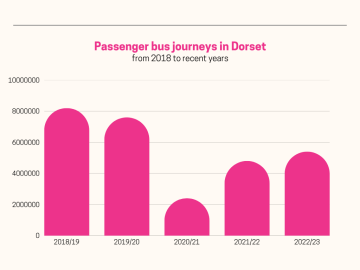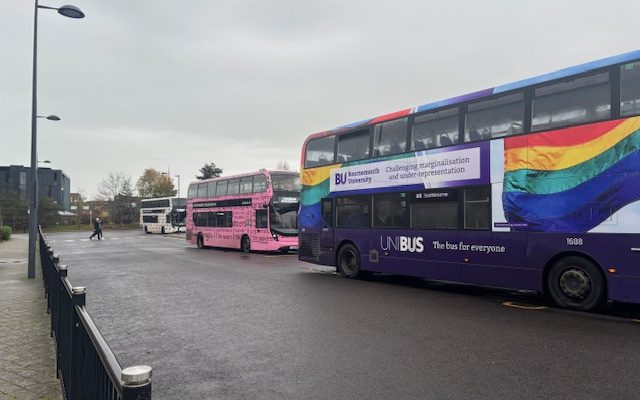Data from Dorset Council shows that more than 83,500 residents cannot reach a town centre within a 30-minute bus journey. This figure, from the 2024 Bus Service Improvement Plan, means over one in five residents are cut off from regular services.
It is Dorset council’s third improvement plan since the national bus strategy began in 2021.
Dorset’s network is still struggling, with only around 78% of bus departures ran on time in 2023- 24, compared to the national average of 82-84%.
The report states punctuality is a key performance indicator, which the council monitors through the Bus Open Data Service (BODs).
It says delays are often caused by external factors, such as roadworks and seasonal traffic.

Passenger numbers also remain low. There were roughly 5.4 million local bus journeys across Dorset recorded in 2022- 23.
This is 30-35% below pre-pandemic levels, where annual journeys were around 8 million.
Rural areas face the largest gaps. Parts of North Dorset, Purbeck and West Dorset have few or no daily services.
This data means that many residents are relying on cars whilst some have no option of transport at all.
Across rural England, local bus mileage has fallen by more than a quarter over the past decade, a trend that mirrors the shrinking services now seen across Dorset.
The council received £13.3 million in national funding to support improvements to the bus services.
The report does still warn that long- term progress is dependent on continuous funding as without it services and upgrades may not be sustainable.
Overall, the data shows that Dorset’s bus network remains unreliable, underused, and difficult to access for some.


 SUBU’s approach to Men’s mental health week
SUBU’s approach to Men’s mental health week